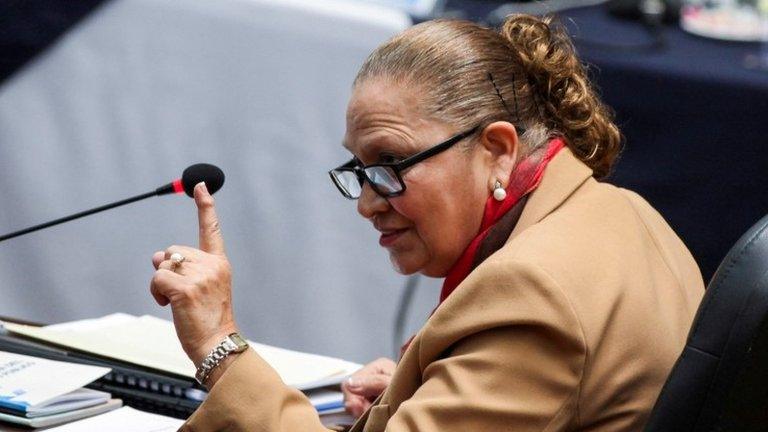Guatemala paralysed as pro-democracy protests run into second week
- Published
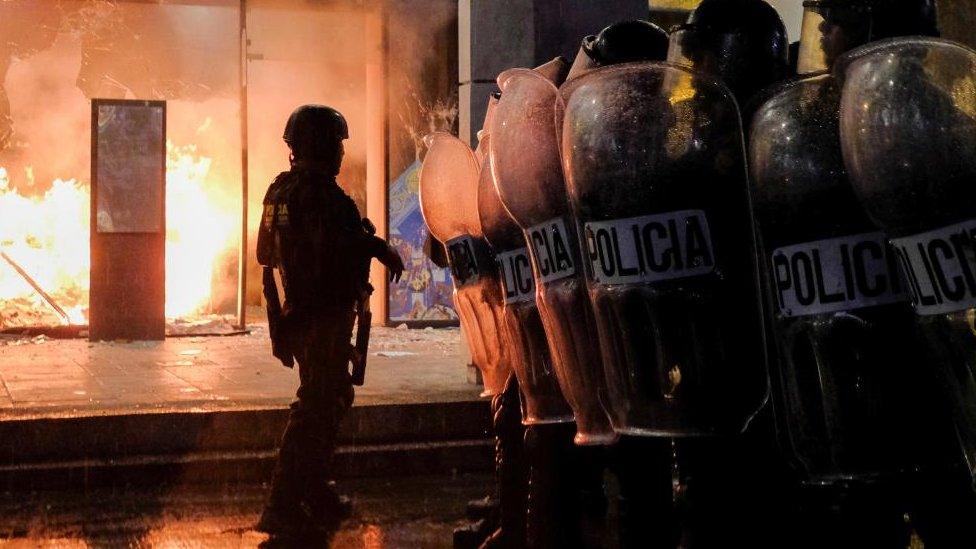
Police were out in force in Guatemala City on Monday after arson attacks on a building
Tension is rising in Guatemala, where protests by supporters of President-elect Bernardo Arévalo have run into a second week.
The protesters are demanding the resignation of Attorney-General Consuelo Porras.
They accuse Ms Porras of plotting to prevent Mr Arévalo, who has promised to fight corruption, from taking office.
Some of the protests, which had been peaceful until now, turned violent on Monday.
Masked men threw stones and broke windows at a demonstration outside the National Palace of Culture in the capital, Guatemala City.
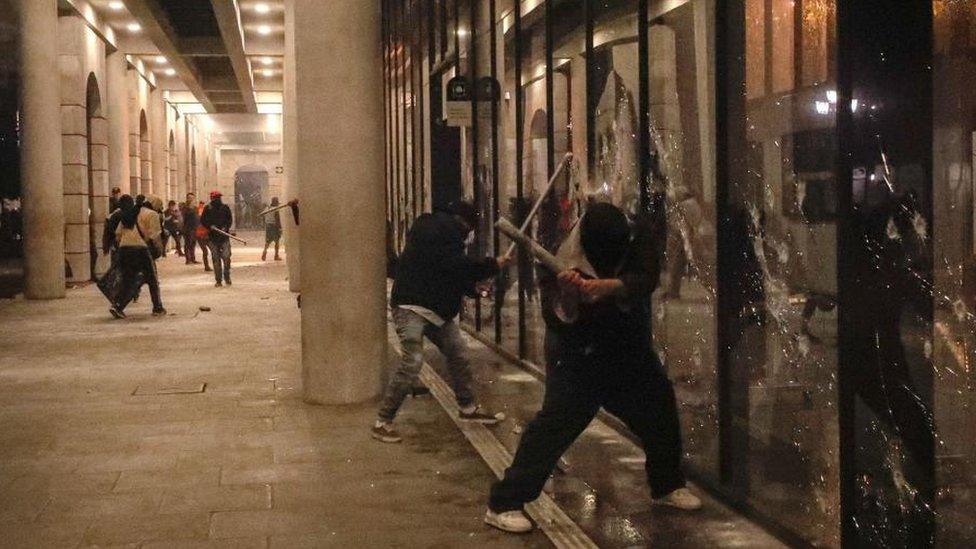
Masked men vandalised buildings and threatened protesters and reporters
Efe news agency said that the peaceful protest had been "infiltrated" by about 200 troublemakers, who threatened the protesters and members of the press with sticks and clashed with police.
A government official, Napoleón Barrientos Girón, later confirmed that the violence had been caused by "groups of infiltrators". "We're chasing and capturing them," Mr Barrientos said.
The clashes came on the eighth consecutive day of protests by supporters of Mr Arévalo, who won the presidential election by a landslide in August.
Just hours after his overwhelming win, the party he heads, Movimiento Semilla (Seed Movement), was suspended by Guatemala's Supreme Electoral Tribunal.
His party's suspension has widely been viewed as an attempt to stop Mr Arévalo, a political outsider who has campaigned against corruption, from being sworn in as planned in January.
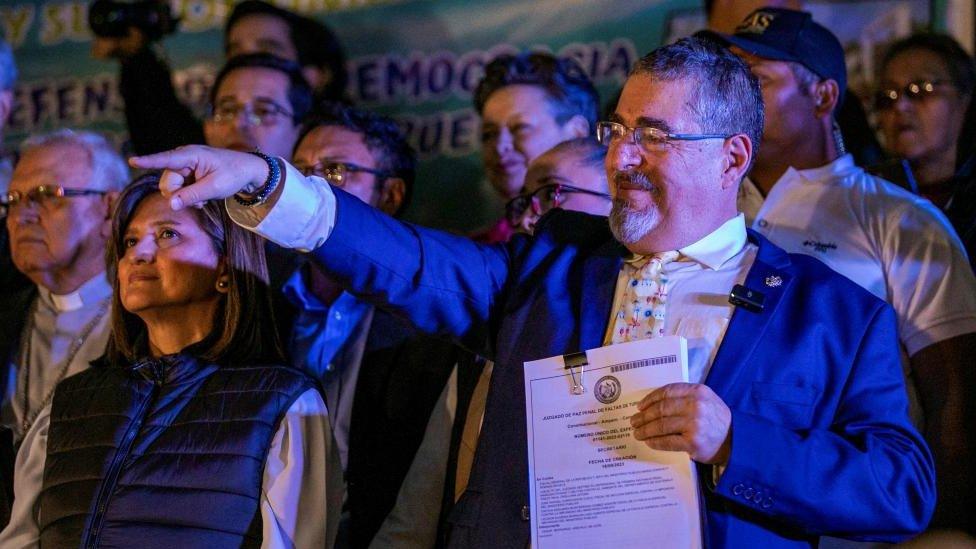
Bernardo Arévalo was elected by a landslide in the run-off of the presidential election in August
Mr Arévalo himself has described it as a "coup d'etat". His supporters have since taken to the streets to demand that Consuelo Porras, the attorney-general they say is behind efforts to block Mr Arévalo, be removed from her post.
Ms Porras argues that Mr Arévalo's party was not properly registered, but critics point out that she only launched her investigation into the party after Mr Arévalo's strong showing in the first round of the election secured him a spot in the run-off.
The protests intensified last week as demonstrators blocked key roads across the country. The blockades have caused fuel and food shortages in some regions, as well as paralysing traffic on major highways.
In a televised address to the nation, the outgoing president, Alejandro Giammattei, called on protesters to lift the blockades, which he said were "illegal, generate supply shortages [and] put Guatemalans' lives at risk".
He also asked Mr Arévalo to sit down with mediators sent by the regional body Organization of American States (OAS) to ensure a peaceful handover of power on 14 January, when President Giammattei's term in office ends.
Related topics
- Published7 September 2023
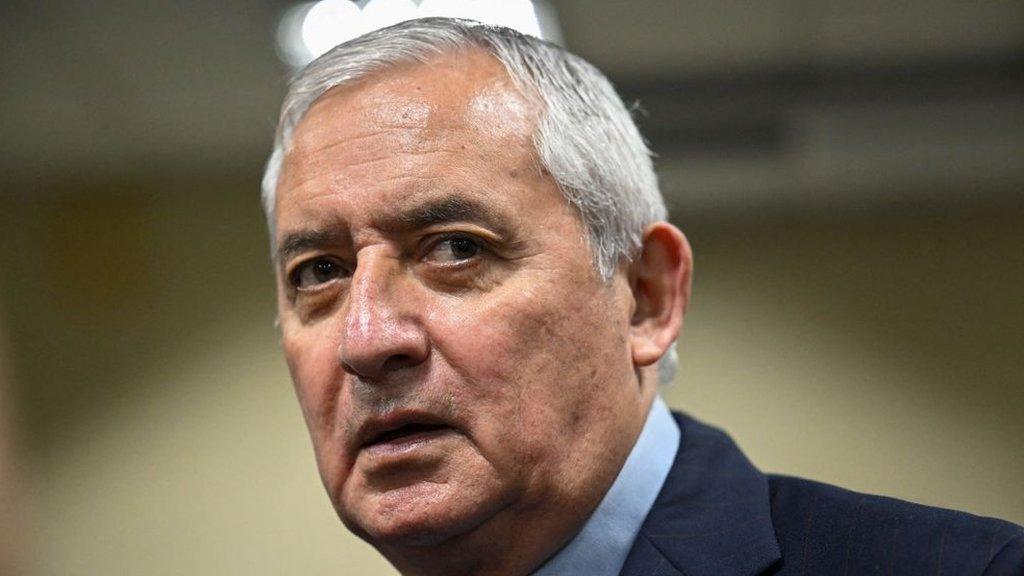
- Published21 August 2023
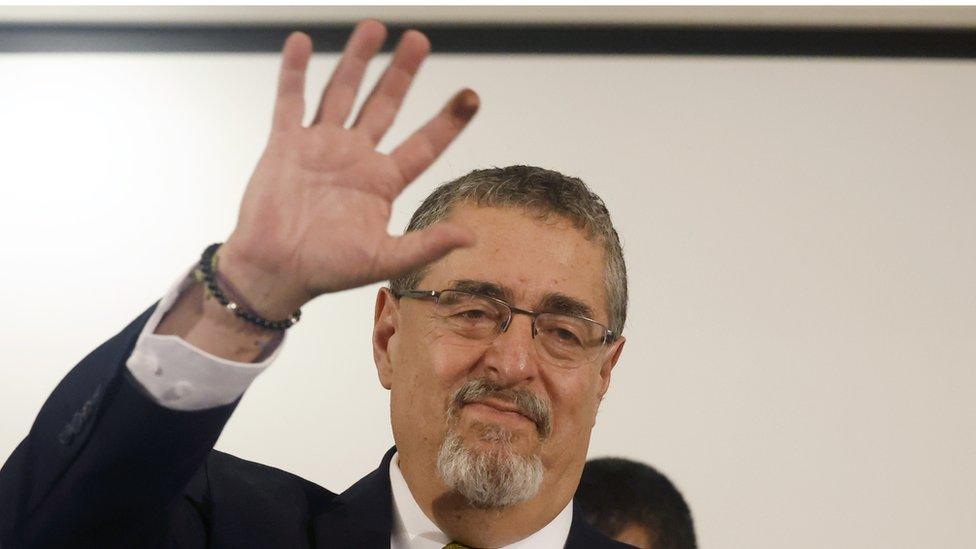
- Published17 May 2022
